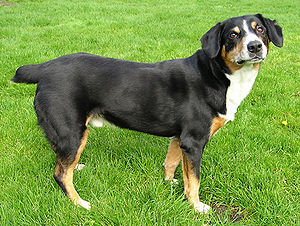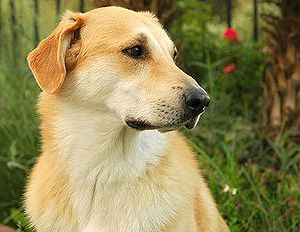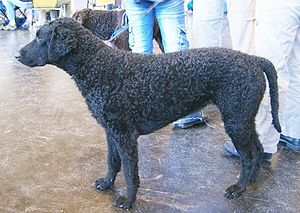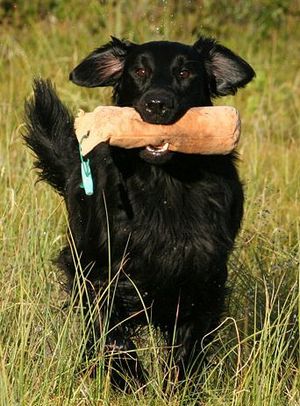 |
| Vital Statistics: |
| Place of Origin: Switzerland |
| Group: Herding dog |
| Height: males 17-21 in., females 16-20 in. |
| Weight: 55-66 lbs. |
| Life span: 11-13 yrs. |
| Trainability: high |
| Good with children: with early socialization, yes |
| Good with other pets: need supervision |
What is the origin of the Entlebucher?
The Entlebucher has its origins in Switzerland. It is one of the four Swiss mountain dogs and is the smallest. Entles are descended from the Molossus, brought to Europe by the Romans over 2,000 years ago. Thanks to the efforts of Professor Albert Heim who exhibited the Entle in 1913 and Dr. B. Kobler who founded the Swiss Club of Entlebucher Cattle Dogs, the breed has prospered.
What does the Entlebucher look like?
The Entle is medium-sized with a muscular, compact body. Males are 17-21 inches tall and females are 16-20 inches tall. Weight is 55-66 lbs. Ears are set high and wide, triangular, with rounded tips, lying close to the head. Eyes are almond-shaped and dark brown. The nose is black. The tail can be natural or docked where this practice continues, or it may have a natural bobtail. The coat is double with the topcoat shiny, short and hard and a dense undercoat. Color is tricolor, black with tan and white markings. Weekly brushing keeps the coat clean.
What is the temperament of the Entlebucher?
While the Entle can be independent and strong-willed, it is also very devoted to its humans. Early professional, positive obedience training is recommended as early as 10 weeks old. Entles need early socialization as well. They are usually good with childrenbut need early interaction to be taught how to behave gently with them. They can be wary of strangers. Entles are good with other dogs, but shouldn’t be left alone with small pets. Entles are very active dogs and need families that are active as well. They are happiest with daliy vigorous exercise.
What is the Entlebucher used for?
Entles are highly intelligent dogs. They are used for herding, compete in obedience and agility trials, tracking and frisbee. They are loyal and affectionate, devoted to their families.
Possible Health Issues
Progressive retinal atrophy, cataracts, EUS (Entlebucher Urinary Syndrome where the tube carring urine to the kidneys is not in the normal location), heat stress.
- Australian Cattle Dog
- Australian Kelpie
- Australian Shepherd
- Bearded Collie
- Beauceron
- Belgian Sheepdog – Groenendael
- Belgian Tervuren
- Bergamasco
- Berger Picard
- Blue Lacy
- Border Collie
- Bouvier des Flandres
- Briard
- Cardigan Welsh Corgi
- Catahoula Leopard Dog
- Collie
- English Shepherd
- Finnish Lapphund
- German Shepherd
- Hovawart
- Icelandic Sheepdog
- Laika
- Lancashire Heeler
- Miniature American Shepherd
- Mudi
- Old English Sheepdog
- Pembroke Welsh Corgi
- Polish Lowland Sheepdog
- Puli
- Pumi
- Pyrenean Shepherd
- Shetland Sheepdog
- Standard Schnauzer
- Swedish Vallhund



